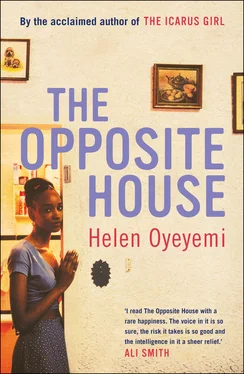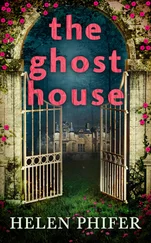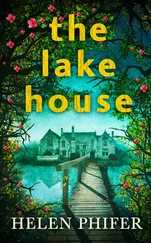Helen Oyeyemi - The Opposite House
Здесь есть возможность читать онлайн «Helen Oyeyemi - The Opposite House» весь текст электронной книги совершенно бесплатно (целиком полную версию без сокращений). В некоторых случаях можно слушать аудио, скачать через торрент в формате fb2 и присутствует краткое содержание. Год выпуска: 2008, Издательство: Bloomsbury UK, Жанр: Современная проза, на английском языке. Описание произведения, (предисловие) а так же отзывы посетителей доступны на портале библиотеки ЛибКат.
- Название:The Opposite House
- Автор:
- Издательство:Bloomsbury UK
- Жанр:
- Год:2008
- ISBN:нет данных
- Рейтинг книги:4 / 5. Голосов: 1
-
Избранное:Добавить в избранное
- Отзывы:
-
Ваша оценка:
- 80
- 1
- 2
- 3
- 4
- 5
The Opposite House: краткое содержание, описание и аннотация
Предлагаем к чтению аннотацию, описание, краткое содержание или предисловие (зависит от того, что написал сам автор книги «The Opposite House»). Если вы не нашли необходимую информацию о книге — напишите в комментариях, мы постараемся отыскать её.
The Opposite House — читать онлайн бесплатно полную книгу (весь текст) целиком
Ниже представлен текст книги, разбитый по страницам. Система сохранения места последней прочитанной страницы, позволяет с удобством читать онлайн бесплатно книгу «The Opposite House», без необходимости каждый раз заново искать на чём Вы остановились. Поставьте закладку, и сможете в любой момент перейти на страницу, на которой закончили чтение.
Интервал:
Закладка:
I like to sleep with the washed-out, monochrome, passport-sized photo of Bisabuela Carmen under my pillow — the only other copy of it is slotted into Chabella’s altar. In the pictures, Bisabuela Carmen’s skin doubles in on itself in a river of wrinkles; her mouth and nose are washed away. Her gaze is bright, tough; she looks as if she doesn’t care and not caring is a statement — really, I don’t care!
Abuela Laline told Mami that once, when a child had been struck dead by lightning, Carmen called up the personification of lightning, Iya, for a fight — but Iya wouldn’t come. Chango came, amused, to see what the fuss was about, and so Carmen wrestled Chango, the storm god at the bottom of St Barbara’s stare. When Chabella says that Chango ‘came’, she means that at a Santeria Mass Chango stepped down from heaven. He slid into the space left between song and drumbeat, he pierced veils of spiced smoke, and he possessed the body of a burly, full-grown man. Then he seized my Bisabuela Carmen by the neck. Carmen must have been terrified but, as Mami says, ‘anyhow she tried’. She lost, of course she lost.
Chango broke both of Carmen’s arms and a leg, sparing her her life because she surprised him — her boldness surpassed humanity. But Chango was wary ever afterwards of Carmen’s sharp nails and deep bite. Mami’s apataki tales aren’t only about the gods; they flow and cover her family too, her memories place a mantle around Bisabuela Carmen, whose namesake I am.
Carmen was born in Camaguey six years before slavery was officially abolished in Cuba. My Bisabuela lived her last years in her other son-in-law’s house because she could not sleep under the same roof as my grandfather, Abuelo Damason the Unbeliever. Abuela Laline was unhappy; Consuelo was only her half-sister but seemed always to have been the smiled-upon one — Carmen had forgotten to halve her love. Also, Bisabuela Carmen predicted lunacy for my Abuelo Damason. Abuela Laline hissed, ‘How could you wish lunacy on the father of my children, Mami?’
Carmen replied, ‘I don’t wish it. But if you forget your ancestors you forget yourself. Isn’t that what it is to run mad, to forget yourself?’
Laline reported Carmen’s words back to Mami decades later, in tones of triumph, because Abuelo Damason had remained lucid and sardonic about everything going on around him right up until the day his heart muscle wound tight and flung him into the next life with the force of its uncoiling. But at the time of her prediction, my Bisabuela Carmen was adamant in her decision to live with Consuelo. Bisabuela Carmen ignored Consuelo’s children, Chabella’s boy cousins. She insisted on having Chabella by her on weekends. At mealtimes, Chabella brought food to Bisabuela Carmen’s room, knelt by the old woman’s rocking chair and handfed her. Carmen’s teeth were worn stumps. She sucked at her teeth and she looked out of the window and she said, ‘Jesus bless you,’ between mouthfuls of mashed cassava and ajiaco .
Carmen smelt of sour wine. Chabella took an interest in her abuela because her abuela called her ‘Carmen, too’. Nobody in that house dared to contradict the old woman and remind her of her granddaughter’s real name. Carmen told Chabella stories about the Orishas as if she were telling about a place that she had just left and was impatient to get back to — without breaking the flow of her words she shook and rocked in her chair, she rose and lifted her voice, and clapped her hands.
On Carmen’s mantelpiece, amongst her tall candles, was a statuette of a black Madonna. One afternoon, in the middle of her tale-telling, Carmen lifted her head and stared at the statuette. She strode across the dim room with her African print gown beating the air around her like wings, and she took the black Madonna in her hand and crushed its head against the wall. Dust fell out, and then a white flower. It was not a flower that Chabella could name. Chabella touched the flower and fresh dew rolled off the fringed petals, petals closed like a mouth around a spiky green stamen. There was blood on some of the petals, but it was not the Madonna’s blood, it was Carmen’s — she’d cut her finger on a piece of the porcelain.
Carmen got to know that Chabella couldn’t eat pork chops because she was troubled by the problem of the bone beneath the meat. Carmen took a pork chop and tore the meat off the bone and divided it with her teeth. Chabella watched her abuela struggle with the meat against the suction of her gums and she understood that this was love. Bisabuela Carmen spat the brown mess into Chabella’s bowl and panted, ‘There, no bones. Don’t be afraid of it any more.’
Chabella discovered that meat eaten from the bone was not so bad after all.
Bisabuela Carmen put cracked lips to Chabella’s ear and said, ‘Carmen, we are one. Carmen, you are born again, but you are born without your tongue. Find it. Be who you were before before.’
Mami’s Elegua collar came to her long before she became a Santero or understood what Santeria was. It came to her from Bisabuela Carmen’s hand. In Chabella’s first moment of ownership, the collar was of such weight that when she looked down at the double cup she’d made of her hands, the collar was in the centre of it and her fingertips were filled with the blood that had drained away from her palms.
Chabella wanted to know if this collar was the tongue that Carmen had said was missing from her.
Yes, no, perhaps, Bisabuela Carmen said.
Chabella was twelve when Carmen died. Carmen did not warn Chabella of her intentions, but one morning she made a hand gesture of submission, lowering her palms with a resigned flick, turned over onto her stomach in bed
(for that was how she liked to sleep)
and let her breath leave her.
Because she is venerated and loved to distraction, because Chabella will not let her fade, my Bisabuela is a friend who is locked inside her own face.
The cold has driven Mami back into the house; she is perched woodenly on the arm of a sitting-room chair. From the next room Papi wonders aloud why some women need to act like madwomen and give old men trouble. Mami is directly beneath the benign gaze of Elegua’s double, the paint-swaddled Holy Child of Atocha. Tomás and I call him The Holy Kid. He is happy today. Before him, on a small mahogany wall-bracket, is a shallow dish full of pallid aguardiente , Elegua’s favourite alcoholic offering.
When Mami sees me, she scrambles up from her seat. I pick up her overnight bag — its canvas corners are collapsing; the last time she used it, Tomás was being born. Tomás, the most fastened fifteen-year-old I have ever known, is probably lying on his bed right now, plugged into his Walkman; Fela Kuti’s hoarse euphony, or NWA.
Before we can leave, Papi carefully emerges from the kitchen (hobbling is beneath him, but he is unable to disguise his arthritis) his close-cut grey hair gleaming in the light that ricochets from his glasses. He says, ‘Maja, help me talk to this woman. You’d better help me talk to her. She tried to poison me. .’
Mami puts her hand in mine and tugs me away.
‘I will come back when you have fixed my altar,’ Chabella tells Papi, coldly. ‘And when you’ve put it back where it was.’
Papi groans, ‘ Isabella .’ Nobody calls my Mami that except in desperation.
Once Mami and I are safely outside she says, ‘Look at you in those jeans!’ and taps my thigh with forced gaiety. ‘Just look at you. They fit too close, they’ll do some kind of damage. M’hija , you will not be able to have children if you’re not careful.’
Aaron sleeps amongst toppled blankets on the sitting-room floor. Mami and I tiptoe past him. I make her a late dinner and pretend not to hear her tutting loudly over the mess in the kitchen. Chabella eats enormous amounts of food with consummate delicacy; she gives the impression of eating sparely and denying herself, lining shredded pieces of fried plantain around the edge of her bowl of stew, mashing fufu into the stew with her spoon. But she eats it all, slowly and in small mouthfuls. With her other hand, she serenely marks A-level German coursework. Fifty-two, still dewy-skinned, with a serious, slow-burning bonfire stare and a head of coal-black hair, Chabella looks better and stronger than she ever did in her thirties and forties. I sit opposite her, chin in hand, watching her, smiling stupidly because she is so beautiful.
Читать дальшеИнтервал:
Закладка:
Похожие книги на «The Opposite House»
Представляем Вашему вниманию похожие книги на «The Opposite House» списком для выбора. Мы отобрали схожую по названию и смыслу литературу в надежде предоставить читателям больше вариантов отыскать новые, интересные, ещё непрочитанные произведения.
Обсуждение, отзывы о книге «The Opposite House» и просто собственные мнения читателей. Оставьте ваши комментарии, напишите, что Вы думаете о произведении, его смысле или главных героях. Укажите что конкретно понравилось, а что нет, и почему Вы так считаете.












